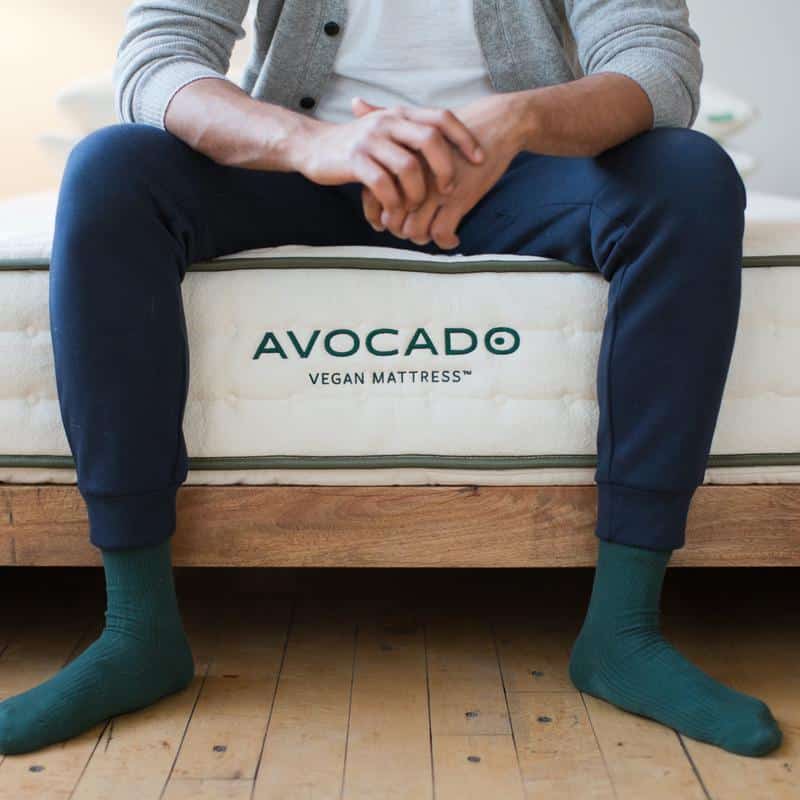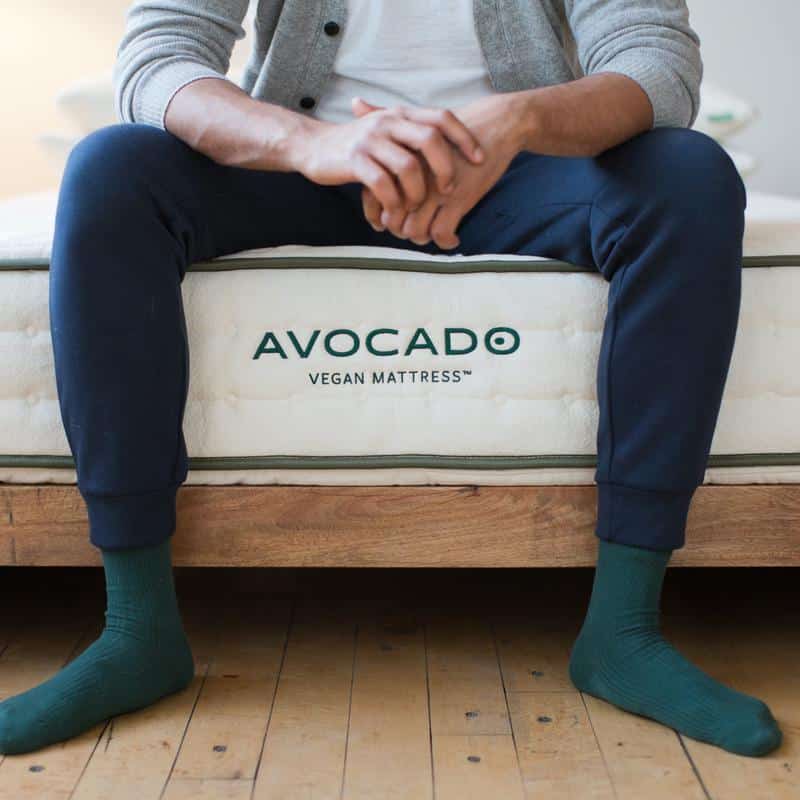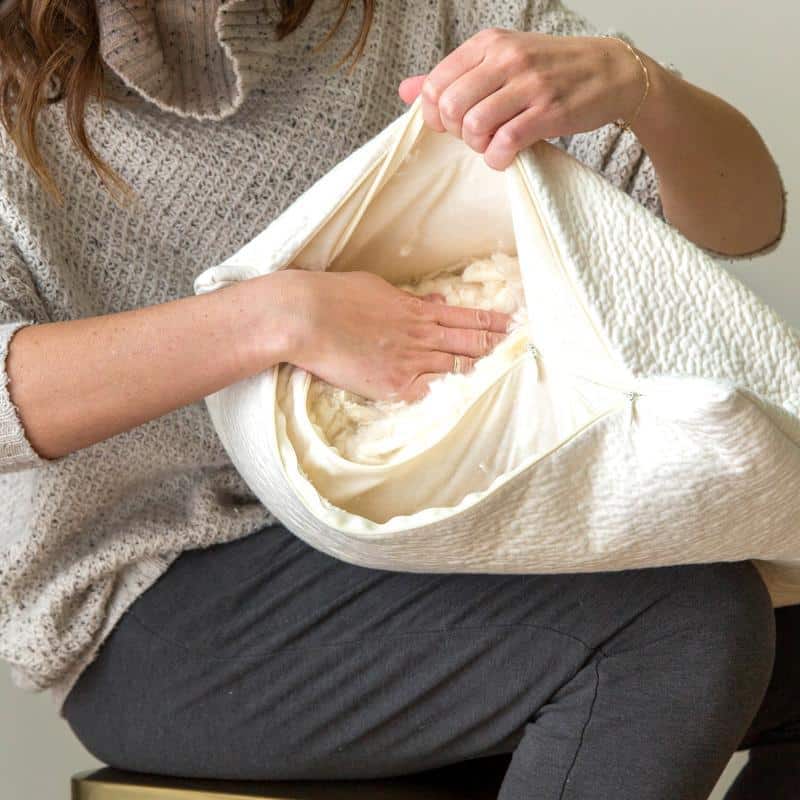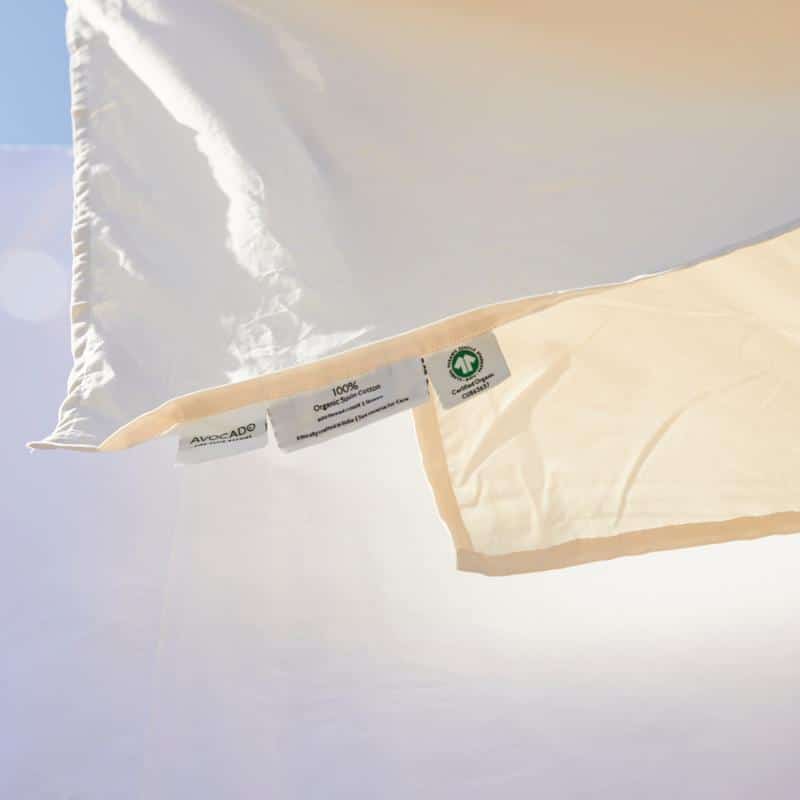

Avocado
Increased consumer interest in sustainability has largely driven the expansion of new organic product lines. It’s this combination of consumer consciousness and evolved eco-friendly products that has people searching for the best organic mattress, and Avocado mattress reviews indicate it’s one of the top companies in the industry.
In this article, we’ll take a closer look at the Avocado mattress, which we think is the best eco-friendly mattress available online. We’ll explore what makes it such a popular pick in the eco-market, it’s use of organic cotton, what makes latex different from innerspring and memory foam—and more.
What makes Avocado the most popular organic mattress?
There are two groups that most people will turn to while researching a product: Expert reviewers and fellow consumers. When it comes to picking the best organic mattress, both the pundits and verified customers agree that an Avocado mattress is at or near the top of the list.
U.S. News & World Report recently gave Avocado a nod in the categories of best mattress, best for back pain, best for stomach sleepers, best firm mattress and best hybrid mattress, citing its ability to provide a more restful night’s sleep.
Avocado mattresses were also named best healthy mattress and best organic mattress in Health.com’s Healthy Home Awards, best mattress in a box for the environmentally conscious by Shape magazine and best organic mattress by Good Housekeeping.
The brand has also received a certificate of endorsement from the American Chiropractic Association and been consistently lauded by Consumer Reports. What’s more, there are more than 18,000 5-star Avocado mattress reviews from verified customers.
Avocado corporate stewardship
Peeling the curtain back on the company’s operations and mission, it’s easy to see why so many Avocado mattress reviews consider it to be the best in the business.
The brand’s products are American-made, designed in Hoboken, New Jersey, and manufactured by hand in Los Angeles.
Its factories are powered by renewable energy, and Avocado produces its own natural latex and ethically harvests wool from sheep that the company raises itself.
It’s because of that commitment to sustainability and eco-friendly practices that the Avocado mattress became the first in the world to achieve net-zero carbon emissions. And earlier this year, the company announced that it now offsets more carbon than it generates.
It’s also important to mention that Avocado is certified organic by the USDA, as well as being GOTS (Global Organic Textile Standard) certified and GOLS (Global Organic Latex Standard) certified.
Beyond its goal of providing superior products that promote healthy sleep, Avocado believes in the power of sustainability and social responsibility—a belief it backs up by donating 1% of all revenue to environmental nonprofits.
Each product featured here has been independently selected by the writer. If you make a purchase using the links included, we may earn commission.
Our Favorite Avocado products
Here are a few of Avocado’s highest-rated products.
Avocado Vegan Mattress

Avocado
- GOLS organic certified latex
- GOTS organic certified cotton
- 1,000+ pocketed support coils
- No polyurethane foams, polyester, or toxic fire retardants
- Replaces all cotton with wool
- Vegan certified
- PETA-approved
- Over 750 Avocado mattress reviews give this product a 4.6-star rating
This breathable latex foam mattress has a reduced carbon footprint and is super comfortable. Instead of the organic wool some mattress brands use, the cotton covering composed of eco friendly cotton materials. Avocado leads our list of organic mattress brands.
It’s a latex mattress—not a memory foam or innerspring. Latex foam is bouncier than memory foam, hugs your body more, and is quick to recover it’s shape. This bed is firm to medium firm.
Off-gassing is a familiar trait among most new mattresses that com in a box. When you open the Avocado you will smell something like formaldehyde—but don’t fret. It goes away as you let the organic cotton cover air out.
Alpaca Wool Plush Mattress Topper

Avocado
- Certified organic and natural materials
- Natural alpaca and GOTS organic certified wool and cotton
- Soft, plush feel that’s more “luxurious” than most common products
- Elastic straps to hold it in place
- Over 100 reviews give the product a 4.1-star rating
Unlike some other pillow tops designed to provide support, this top layer is designed to provide pressure relief. Made with raw materials that are certified organic, the organic wool topper is an eco-friendly way to add a bit more comfort to your natural mattress.
Avocado Green Pillow

Avocado
- GOLS organic certified latex and GOTS organic certified kapok
- Organic jersey cotton liner that’s machine washable
- GOTS organic certified quilted cotton cover
- GREENGUARD Gold certified, vegan, and handmade in Los Angeles
- Nearly 4,500 reviews give this product a 4.5-star rating
Organic Superfine Suvin Cotton Sheets

Avocado
- GOTS organic certified Indian Suvin Cotton
- 1,000 thread count per inch weave
- Sateen finish
Most mattress companies also have pillows, sheets, and sleep accessories to go with their product line. Avocado sheets stand out for their organic certification. These sheets are made completely with GOTS certified organic cotton. They’re a cool, comfy way to cover that new mattress.
Beyond just its top-selling mattresses and bedding, Avocado manufacturers ancillary bedroom products like bed frames, dressers and end tables.
What should I look for when buying an organic mattress?
Whether it’s an Avocado mattress or another product from a reputable manufacturer, there are a few things to consider before making a purchase.
The first thing to know is that accreditation gets a little fuzzy.
The reality is that not all mattresses claiming to be “natural” or even “organic” will qualify for an official organic label from the United States Department of Agriculture (USDA). In order to do so, mattresses must be made up of 95% certified organic materials.
In addition, no harmful chemicals can be used in the processing or production of the mattress, which is considered a complex finished textile product.
As you research, you may find that some mattress manufacturers will call their products “organic” because they use a smattering of organic products—but not enough to carry the USDA seal, a practice that’s known as greenwashing.
To find a mattress that has been certified organic, you’ll want to look for accreditations like GOTS (Global Organic Textile Standard).

You can also look for the GOLS (Global Organic Latex Standard) logo.

These two standards help to uphold the 95% organic rule.
Once you’re squared away with certifications, the rest of the buying process is similar to purchasing a traditional mattress.
First, you’ll want to find one that satisfies your desired level of comfort.
As a rule, many organic mattresses tend to be a bit stiffer, so testing its firmness—either before purchase or during a trial period after you get it home—is in your best interest.
Do I pay more for an organic mattress?
As with most purchases—especially in the organic space—cost is a factor. A goal of bringing home the best eco-friendly mattress money can buy can price some consumers out of the organic market entirely.
Like any consumer good, organic mattresses come in a variety of price points based on size, comfort level, materials used and amenities. However, generally speaking, you will pay more for an eco-friendly mattress than you might for a traditional mattress.
What am I paying for with an organic mattress?
Perhaps the biggest reason why someone would purchase an organic mattress is because of its sustainability.
In a recent survey by Southern Cross University, more than three-quarters of all participants said they wanted to learn more about sustainable lifestyles. And for at least some of those people, supporting the environment meant altering their habits of consumption.
Further, statistics show a substantial cross-section of consumers across various age ranges who are even willing to pay more for eco-friendly products and services.
One of the reasons why someone might be willing to pay more to purchase the best organic mattress is for their own safety.
Products treated with harsh or toxic chemicals can contaminate the air we breathe, a particularly troubling hazard considering we spend about one-third of our lives in bed. To make matters worse, the U.S. Environmental Protection Agency (EPA) says that indoor air can be as much as five times more polluted than outdoor air. Air-purifying plants can help rid your home of toxins after you purchase new furniture, including mattresses, but it’s best to not introduce them in the first place.
There’s also the durability factor of a certified organic mattress. Compared to an organic mattress, there could be several years difference in how long a traditional mattress lasts before wear and tear or loss of support forces a replacement purchase. And because an organic mattress has high-quality materials that maintain its support and shape, you’re likely to report better sleep patterns for longer.
Avocado mattress review: Our final thoughts
If your quest to find the best organic mattress has led you to Avocado, it’s a good place to start. The brand has a verifiable commitment to sustainability, uses natural and non-toxic materials, and even donates a share of its revenues to nonprofits with a similar mission and vision. Plus, Avocado mattress reviews are overwhelmingly positive.
Whatever direction you go in for your next purchase, we encourage you to think about how your purchases impact the world. Small choices over time add up, and we can all shop a little smarter.
- Best (Organic) Sheets for Your Linen Closet - EcoWatch
- 2021 Best Organic and Natural Mattress: Guide & Reviews

 233k
233k  41k
41k  Subscribe
Subscribe 